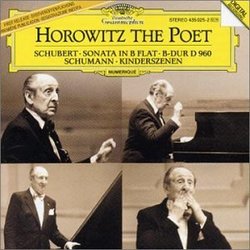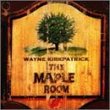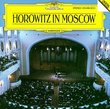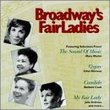| All Artists: Franz [Vienna] Schubert, Robert Schumann, Vladimir Horowitz Title: Horowitz The Poet Members Wishing: 0 Total Copies: 1 Label: Dg Imports Original Release Date: 1/1/1991 Re-Release Date: 9/9/1991 Album Type: Import Genre: Classical Styles: Forms & Genres, Sonatas, Historical Periods, Modern, 20th, & 21st Century, Romantic (c.1820-1910) Number of Discs: 1 SwapaCD Credits: 1 UPC: 028943502528 |
Search - Franz [Vienna] Schubert, Robert Schumann, Vladimir Horowitz :: Horowitz The Poet
 | Franz [Vienna] Schubert, Robert Schumann, Vladimir Horowitz Horowitz The Poet Genre: Classical
![header=[] body=[This CD is available to be requested as disc only.]](/images/attributes/disc.png?v=5b450bfd) ![header=[] body=[This CD is available to be requested with the disc and back insert.]](/images/attributes/disc_back.png?v=5b450bfd) ![header=[] body=[This CD is available to be requested with the disc and front insert.]](/images/attributes/disc_front.png?v=5b450bfd) ![header=[] body=[This CD is available to be requested with the disc, front and back inserts.]](/images/attributes/disc_front_back.png?v=5b450bfd) |
Larger Image |
CD DetailsSimilarly Requested CDs
|
CD ReviewsPicky Schubert and Inspired Schumann Hank Drake | Cleveland, OH United States | 05/12/2003 (4 out of 5 stars) "Horowitz the Poet contains performances released after the pianist's death and approved by the pianist's widow, Wanda Toscanini Horowitz.Horowitz had a complicated relationship with Schubert's last piano Sonata. He revered the Sonata from the 1930s on, but felt it was too small scale a work for performance in today's large concert halls. He finally gave it a try in 1953, playing it at the 25th Anniversary of his American Debut. One critic wrote, correctly, that "Horowitz subjects poor, innocent Schubert to the most neurotic bombardment." The hypertense, oversized 1953 performance is one of the most uncomfortable piano recordings ever made. Despite his difficulties in bringing it to life, Horowitz remained fond of the Sonata and often played it at home. His conception mellowed over the years, and friends urged him to perform it again. Horowitz played the Schubert at several recording sessions in March of 1986, about one month before his Moscow concert. So, his mind may have been elsewhere during these sessions. Though there is a welcome relaxation, and he plays the often neglected first movement repeat, he sounds distracted. Horowitz gussies up the piano writing (adding fifths in the left hand and lowering bass notes), breaks apart phrases, and generally disrupts the flow of the music to the extent that what is left is a parody of Schubert's most sublime piano sonata. The pianist probably recognized the problems with this performance, as he refused to grant Deutsche Grammophon permission to release it. (Other pieces recorded during those sessions, Schubert's Moment Musical No. 3, the Schubert-Liszt Serenade, and Soirees de Vienna No. 6, were released on the "Horowitz at Home" CD in 1989.) In 1991, Wanda Toscanini Horowitz overrode her late husband's rejection and allowed the work to be released. It says something about Mrs. Horowitz's musical judgment that she approved the release of a substandard performance of a highly regarded musical work, but she refused RCA permission to release Horowitz's astounding live performances of Balakirev's Islamey and Liszt's St. Francis Walking on the Water because she felt they were unmusical warhorses. She was clearly more interested in snob repertoire than in great performances.Horowitz had a more steady relationship with Schumann's Kinderszenen. The pianist played it frequently in concert from the 1940s on. This version, his fourth official recording of the work, is from a live performance in Vienna's Great Golden Hall in May of 1987, one of Horowitz's last concerts. In many ways, it's also his finest recording of Kinderszenen. Horowitz's two studio renderings, from 1950 and 1962, are fairly straightforward accounts, with occasional lapses into pianistic micromanagement and hints of nervousness when there should be relaxation. A 1982 live recording is almost the opposite, with bizarre rubatos, distended ritards, slack rhythm, and almost no coherence. But here, in 1987, Horowitz has pulled himself together and plays with simplicity, controlled freedom, and conviction. It is often said that the elderly sometimes return to a childlike state. In old age, Horowitz had achieved communion with Schumann's visions of childhood lost.The sound is fine in both works, with remarkably little audience noise during the live Kinderszenen."
|

 Track Listings (17) - Disc #1
Track Listings (17) - Disc #1








